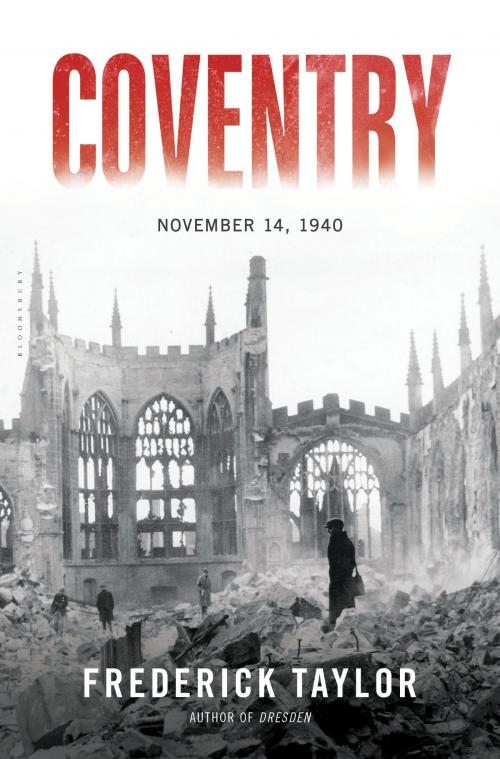| Author: | Frederick Taylor | ISBN: | 9781632861986 |
| Publisher: | Bloomsbury Publishing | Publication: | November 10, 2015 |
| Imprint: | Bloomsbury Press | Language: | English |
| Author: | Frederick Taylor |
| ISBN: | 9781632861986 |
| Publisher: | Bloomsbury Publishing |
| Publication: | November 10, 2015 |
| Imprint: | Bloomsbury Press |
| Language: | English |
The German Luftwaffe's air raid on Coventry, England on the night of November 14, 1940 represented a new kind of air warfare. Aimed primarily at obliterating all aspects of city life, it was systematic, thorough, unconnected to any immediate military goal, and indifferent to civilian casualties. In a single night, roughly two-thirds of the city's buildings were damaged or destroyed as the bombers laid waste to legitimate industrial targets and civilian structures alike. The old St. Michael's Cathedral, a 14th century Gothic structure that burned to the ground that night, still stands in ruins today as a testament to the city's destruction during the raid. Pragmatic British government propagandists would exploit Coventry's perceived status as a "historic town," playing down the city's industrial reputation. This would prove to be a powerful tool, and, as Frederick Taylor shows, was instrumental in tipping public opinion in the then-neutral United States away from isolationism and in favor of help for Britain.
But the bombing would also set a dangerous and destructive precedent as Allied air forces would study the Germans' methods in the attack and ultimately employ similar tactics in their equally ruthless and destructive attacks on German cities, eventually leading to the bombing of Hamburg in 1943 and Dresden in 1945 that killed hundreds of thousands, mostly civilians.
On the 75th anniversary of the Coventry bombing, acclaimed historian Frederick Taylor brilliantly narrates this momentous act and analyzes its impact on World War II and the moral quandaries it still engenders about the nature of warfare.
The German Luftwaffe's air raid on Coventry, England on the night of November 14, 1940 represented a new kind of air warfare. Aimed primarily at obliterating all aspects of city life, it was systematic, thorough, unconnected to any immediate military goal, and indifferent to civilian casualties. In a single night, roughly two-thirds of the city's buildings were damaged or destroyed as the bombers laid waste to legitimate industrial targets and civilian structures alike. The old St. Michael's Cathedral, a 14th century Gothic structure that burned to the ground that night, still stands in ruins today as a testament to the city's destruction during the raid. Pragmatic British government propagandists would exploit Coventry's perceived status as a "historic town," playing down the city's industrial reputation. This would prove to be a powerful tool, and, as Frederick Taylor shows, was instrumental in tipping public opinion in the then-neutral United States away from isolationism and in favor of help for Britain.
But the bombing would also set a dangerous and destructive precedent as Allied air forces would study the Germans' methods in the attack and ultimately employ similar tactics in their equally ruthless and destructive attacks on German cities, eventually leading to the bombing of Hamburg in 1943 and Dresden in 1945 that killed hundreds of thousands, mostly civilians.
On the 75th anniversary of the Coventry bombing, acclaimed historian Frederick Taylor brilliantly narrates this momentous act and analyzes its impact on World War II and the moral quandaries it still engenders about the nature of warfare.















